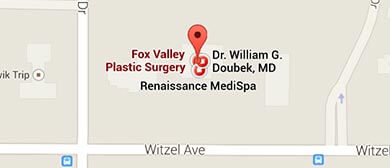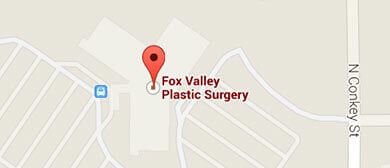Dr. David Janssen, Board-Certified Plastic Surgeon, Fox Valley Plastic Surgery
Breast cancer, the most common type of cancer diagnosed in women, has received considerable attention in medicine. Saving lives, reconstructing the breast and getting patients on the physical and emotional path to recovery have been the highlighted priorities.
One area that needs more focus is the subject of nerve health and its connection to post operative breast pain. Any surgical procedure performed to the breast needs this consideration, especially because of the intercostal nerves located in this area. These nerves send pain and other sensations to the arm from the chest. If they are damaged during surgery, the patient can experience chronic pain.
According to the American Society of Plastic Surgeons, postoperative breast pain is a frequent issue reported by 50 percent of women following a breast procedure. Breast pain may interfere with sexual activity, exercise, social activity and employment.
Women can experience nerve damage in any breast procedure. The risk of damage to the nerves seems to be at least as great in lumpectomy (partial removal of the breast) procedures as in mastectomy (full removal of the breast). Regardless of procedure performed, the surgeon needs to make every effort to best manage the nerves so the patient has the best possible outcome.
In the case of mastectomies followed by reconstruction, the nerve pain is called post-mastectomy pain syndrome (PMPS). Post-mastectomy pain is also caused by damage to intercostal nerves. These nerves exit through the muscles of the chest wall, and provide sensation to the breast, shoulder and upper arm. These nerves may be cut by the surgeon in the process of removing lymph nodes if special consideration is not given to nerve health. However, even if the nerve is carefully preserved, some patients still have pain.
There have been clinical studies performed world-wide on nerve health. The conclusion is that nerve preservation may decrease postoperative arm sensory disturbance and pain for stage I, II and III breast cancer patients.
It should be noted that post-mastectomy pain syndrome can also be caused by a neuroma (abmormal tissue growth). Neuromas can form whenever peripheral nerves are severed or injured, causing pain and sensitivity.
Chronic breast pain may impact a healthy recovery process. Non-surgical treatments for post-mastectomy pain syndrome include medication, physical therapy, acupuncture, massage or hypnosis.
Today, more board-certified plastic surgeons have significant training and experience in nerve-sparing and nerve-connection techniques. As trained micro surgeons, plastic surgeons are able in some cases to micro dissect traumatized nerves and improve pain by manipulating the nerve end.
If you have post mastectomy pain in a highly localized area, consider seeing a plastic surgeon with experience in managing post operative breast pain. In come cases, surgical treatment to block nerves that are causing pain may be the best option.
If you or someone you know is experiencing breast pain, please remember to consider nerve health. Be your own best advocate, do your research and ask a lot of questions.


Oshkosh, WI (920) 233-1540